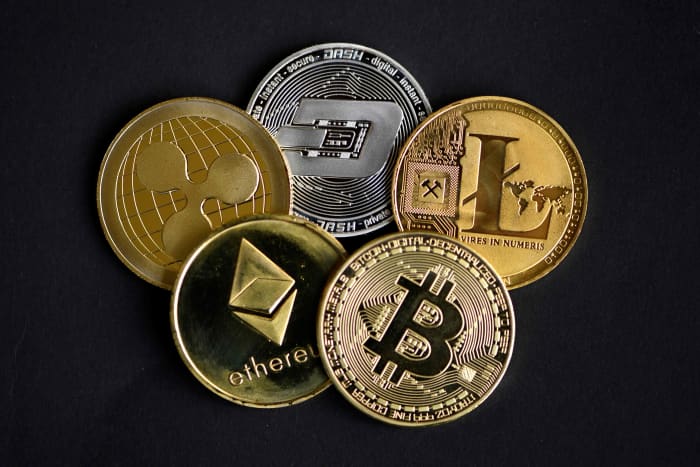In the ever-evolving world of finance, digital currencies have emerged as a revolutionary force, transforming the way we think about money, transactions, and investments. As the global economy becomes increasingly digital, understanding the intricacies of digital currencies is no longer just an option—it’s a necessity. Whether you're a seasoned investor, a curious student, or a professional looking to expand your skill set, this comprehensive guide will provide you with everything you need to know about digital currencies. And if you're looking to dive deeper, Al Mithaq Institute offers specialized courses that can help you master this exciting field.
What Are Digital Currencies?
Definition and Overview
Digital currencies, also known as cryptocurrencies, are a form of currency that exists solely in digital form. Unlike traditional fiat currencies, which are issued by governments and regulated by central banks, digital currencies operate on decentralized networks based on blockchain technology. This decentralization ensures that no single entity has control over the currency, making it resistant to censorship and interference.
Types of Digital Currencies
- Cryptocurrencies: The most well-known type of digital currency, cryptocurrencies like Bitcoin, Ethereum, and Litecoin are decentralized and use cryptographic techniques to secure transactions.
- Stablecoins: These are digital currencies pegged to a stable asset, such as the US dollar, to minimize volatility. Examples include Tether (USDT) and USD Coin (USDC).
- Central Bank Digital Currencies (CBDCs): These are digital versions of a country’s fiat currency, issued and regulated by the central bank. CBDCs are still in the experimental phase in many countries.
- Utility Tokens: These are digital tokens used to access specific services or products within a blockchain ecosystem. Examples include Binance Coin (BNB) and Chainlink (LINK).
The Evolution of Digital Currencies
The Birth of Bitcoin
The concept of digital currencies dates back to the 1980s, but it wasn’t until 2009 that Bitcoin, the first decentralized cryptocurrency, was introduced by an anonymous entity known as Satoshi Nakamoto. Bitcoin’s creation marked the beginning of a new era in finance, offering a peer-to-peer electronic cash system that eliminated the need for intermediaries like banks.
The Rise of Altcoins
Following Bitcoin’s success, numerous alternative cryptocurrencies, or "altcoins," were developed. Each of these altcoins aimed to address specific limitations of Bitcoin, such as transaction speed, scalability, and energy consumption. Ethereum, for example, introduced smart contracts, enabling developers to create decentralized applications (dApps) on its blockchain.
The Emergence of DeFi and NFTs
In recent years, the digital currency landscape has expanded to include decentralized finance (DeFi) and non-fungible tokens (NFTs). DeFi platforms offer financial services like lending, borrowing, and trading without the need for traditional intermediaries. NFTs, on the other hand, represent unique digital assets, such as art, music, and collectibles, and have gained significant popularity in the art and entertainment industries.
How Do Digital Currencies Work?
Blockchain Technology
At the core of digital currencies is blockchain technology. A blockchain is a distributed ledger that records all transactions across a network of computers. Each block in the chain contains a list of transactions, and once a block is added to the chain, it cannot be altered. This immutability ensures the integrity and security of the data.
Mining and Consensus Mechanisms
To validate transactions and add them to the blockchain, digital currencies use consensus mechanisms. The most common mechanism is Proof of Work (PoW), used by Bitcoin, where miners solve complex mathematical problems to validate transactions. Another popular mechanism is Proof of Stake (PoS), used by Ethereum 2.0, where validators are chosen based on the number of coins they hold and are willing to "stake" as collateral.
Wallets and Keys
To store and manage digital currencies, users need a digital wallet. A wallet consists of a pair of cryptographic keys: a public key, which serves as the wallet address, and a private key, which is used to sign transactions and access the funds. It’s crucial to keep the private key secure, as losing it means losing access to the funds.
Benefits of Digital Currencies
- Decentralization: One of the most significant advantages of digital currencies is their decentralized nature. Unlike traditional financial systems, which are controlled by central authorities, digital currencies operate on a peer-to-peer network, giving users full control over their funds.
- Lower Transaction Costs: Digital currencies can significantly reduce transaction costs, especially for cross-border payments. Traditional banking systems often involve multiple intermediaries, each charging a fee. With digital currencies, transactions can be conducted directly between parties, eliminating the need for intermediaries and reducing costs.
- Financial Inclusion: Digital currencies have the potential to bring financial services to the unbanked and underbanked populations. With just a smartphone and internet access, individuals in remote or underserved areas can participate in the global economy, access loans, and save money.
- Transparency and Security: Blockchain technology ensures that all transactions are transparent and immutable. Once a transaction is recorded on the blockchain, it cannot be altered or deleted, providing a high level of security and reducing the risk of fraud.
Challenges and Risks of Digital Currencies
- Volatility: One of the most significant challenges of digital currencies is their volatility. Prices can fluctuate dramatically within short periods, making them a risky investment. For example, Bitcoin’s price has experienced several boom-and-bust cycles since its inception.
- Regulatory Uncertainty: The regulatory environment for digital currencies is still evolving. Different countries have different approaches to regulation, ranging from outright bans to embracing digital currencies as legal tender. This uncertainty can create challenges for businesses and investors.
- Security Concerns: While blockchain technology is secure, digital currencies are not immune to hacking and fraud. There have been several high-profile cases of exchanges being hacked, resulting in the loss of millions of dollars worth of digital assets.
- Environmental Impact: The energy consumption of digital currencies, particularly those that use Proof of Work consensus mechanisms, has raised concerns about their environmental impact. Bitcoin mining, for example, consumes a significant amount of electricity, leading to a large carbon footprint.
How to Get Started with Digital Currencies
Choosing a Digital Currency
With thousands of digital currencies available, choosing the right one can be overwhelming. It’s essential to research and understand the purpose, technology, and team behind each currency. Bitcoin and Ethereum are good starting points for beginners due to their widespread adoption and robust ecosystems.
Setting Up a Wallet
To store your digital currencies, you’ll need a digital wallet. There are several types of wallets, including hardware wallets, software wallets, and mobile wallets. Hardware wallets, like Ledger and Trezor, offer the highest level of security but can be less convenient for frequent transactions.
Buying Digital Currencies
You can buy digital currencies on cryptocurrency exchanges like Coinbase, Binance, and Kraken. These platforms allow you to purchase digital currencies using fiat money or other cryptocurrencies. It’s essential to choose a reputable exchange with strong security measures.
Securing Your Investments
Security is paramount when dealing with digital currencies. Always use strong, unique passwords for your wallets and enable two-factor authentication (2FA) wherever possible. Additionally, consider storing a backup of your private keys in a secure location.
The Future of Digital Currencies
Mainstream Adoption
As digital currencies continue to gain acceptance, we can expect to see more mainstream adoption. Major companies like Tesla, PayPal, and Square have already started accepting Bitcoin as a form of payment, and more are likely to follow.
Integration with Traditional Finance
The lines between traditional finance and digital currencies are beginning to blur. Central banks are exploring the possibility of issuing their own digital currencies, and traditional financial institutions are increasingly offering cryptocurrency-related services.
Technological Advancements
The digital currency space is constantly evolving, with new technologies and innovations emerging regularly. Layer 2 solutions, like the Lightning Network for Bitcoin, aim to improve scalability and transaction speeds, while advancements in quantum computing could potentially revolutionize the field.
Regulatory Developments
As digital currencies become more prevalent, governments and regulatory bodies are likely to introduce more comprehensive regulations. These regulations could provide greater clarity and stability for the industry, but they could also pose challenges for innovation and decentralization.
Why Choose Al Mithaq Institute for Digital Currency Education?
Comprehensive Courses
At Al Mithaq Institute, we offer a range of courses designed to help you master the world of digital currencies. Whether you’re a beginner looking to understand the basics or an experienced professional seeking advanced knowledge, our courses cater to all levels of expertise.
Expert Faculty
Our faculty members bring over a decade of professional experience in the field of digital currencies and blockchain technology. They combine academic excellence with practical knowledge, ensuring that you receive a well-rounded education.
Flexible Learning Options
We understand that everyone has different learning needs and schedules. That’s why we offer both online and in-person courses, allowing you to choose the format that works best for you. Our flexible learning options ensure that you can pursue your education without disrupting your personal or professional life.
Accredited Certifications
Our certificates are recognized locally and internationally, adding significant value to your professional profile. Whether you’re looking to advance your career or start a new one, our certifications can help you achieve your goals.
Hands-On Experience
We believe that practical experience is essential for mastering digital currencies. That’s why our courses include hands-on projects and real-world case studies, giving you the opportunity to apply what you’ve learned in a practical setting.
Conclusion
Digital currencies are reshaping the financial landscape, offering new opportunities and challenges for individuals and businesses alike. As the world becomes increasingly digital, understanding digital currencies is no longer just an advantage—it’s a necessity. Whether you’re looking to invest, develop new skills, or simply stay informed, Al Mithaq Institute is here to help you navigate this exciting field. With our comprehensive courses, expert faculty, and flexible learning options, you’ll be well-equipped to succeed in the world of digital currencies.
Ready to take the next step? Explore our courses today and start your journey towards mastering digital currencies with Al Mithaq Institute.







